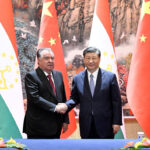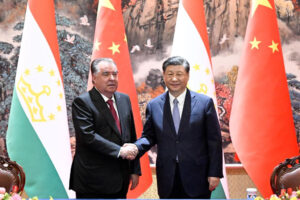Populations around the world are ageing at a dizzying rate
The populations of major countries, especially in the developed world, are ageing at an unprecedented rate. The World Bank says the only way for many states, mainly in Europe and North America, to realise a long-term growth path is to become increasingly dependent on migration. New lifeblood to sustain and revive the world’s economies, not to mention paying the huge and growing pension burdens.
“Migration can be a powerful force for prosperity and development,” said World Bank Group Senior Managing Director Axel van Trotsenburg. “When properly managed, it provides benefits for all people in both sending and receiving societies”.
In the coming decades, the number of people of working age is set to decline dramatically. “In Spain, which has a population of 47 million, this percentage will fall by more than a third by 2100 and the number of people over 65 will increase from 20 to 39% of the population”.
These chilling figures only reinforce the principles of the digital revolution. A couple of weeks ago, international experts called for a six-month halt to the development of artificial intelligence. This is not nonsense. Among the thousand signatories are such prominent gurus as the criticised Elon Musk, founder of Tesla and Space, or Seteve Wozniak, one of Apple’s ideologues. The World Bank report seems to prove them wrong. What will be the size of the labour force in the future?
The report “Migrants, Refugees and Societies” sets out five key principles for seizing what is seen as a historic opportunity to manage these flows of people. Some 184 million people, 2.3% of the world’s population, live outside their country of nationality. Nearly half of them are in low- and middle-income countries”.
A migrant is someone who has adopted the nationality of the country he or she has arrived in and who has the same problems as nationals. Having assumed this first principle, the complexity and growing need for cross-border movements must be recognised, with 43% of people having landed in low- and middle-income countries. “Migration will be increasingly necessary in the coming decades for countries at all income levels,” the report notes.
A third piece of advice, according to the report, is to distinguish between various types of movements in order to identify appropriate policy responses. “The degree to which the skills and attributes of migrants match the needs of destination countries largely determines the economic effects of their movements. The motives behind movements determine the obligations of destination countries under international law.”
A fourth piece of advice is to manage migration strategically, both in countries of origin and destination. According to the World Bank’s work, “governments of countries of origin should make labour migration an explicit part of their development strategy, while governments of destination countries should use ‘hard match’ migration to meet their labour needs”.
The World Bank’s fifth piece of advice on migration is to manage cross-border movements differently. “Use bilateral cooperation to strengthen the matching of migrants’ skills and attributes with the needs of destination economies”.
Source: Atalayar











